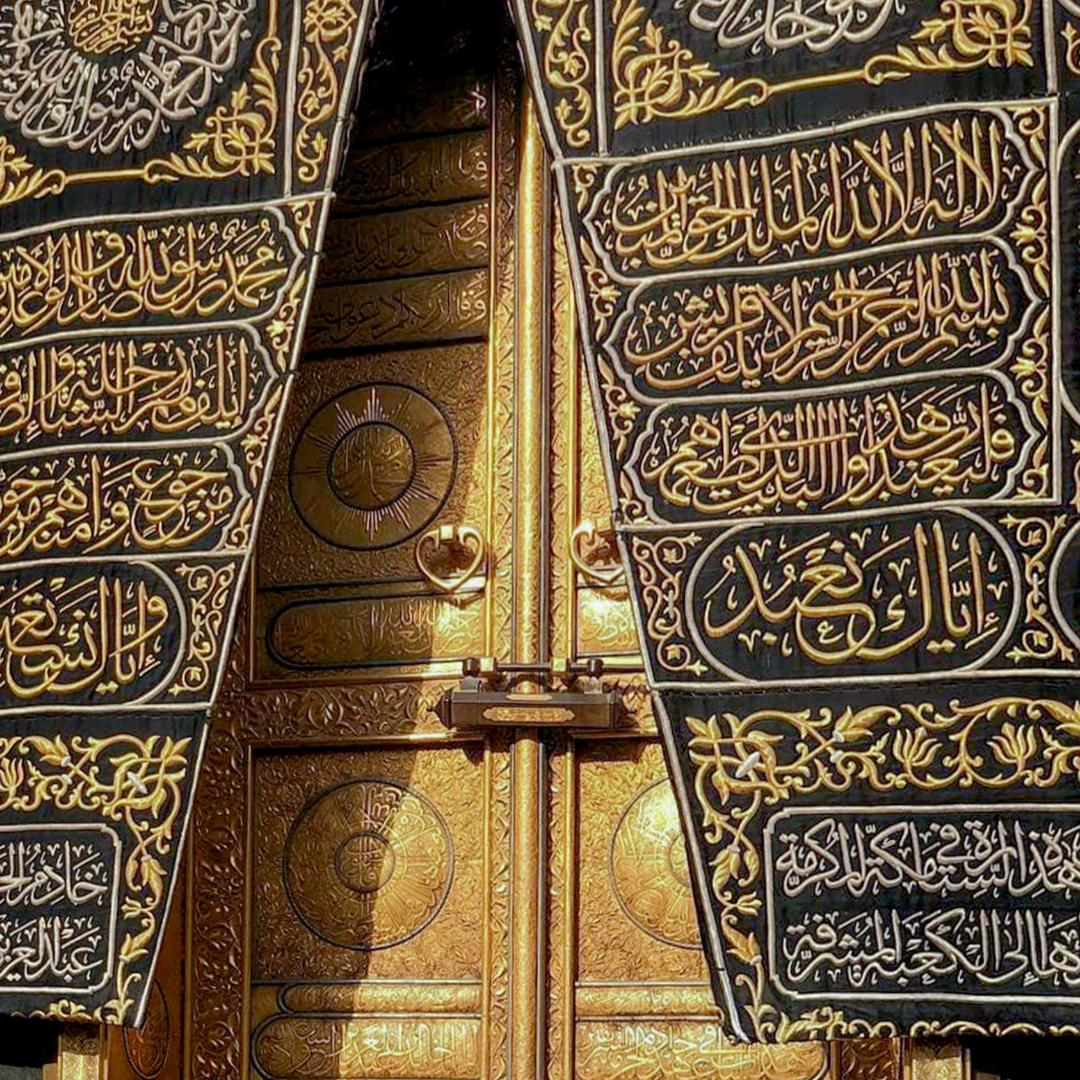The Hajj, one of the five pillars of Islam, is a sacred pilgrimage that every Muslim must perform at least once in their life, if they has the means. This spiritual journey to Mecca is a deeply enriching experience, marked by meaningful rites that bring believers closer to their Creator. In this article, we offer you a complete guide to understanding the stages of Hajj, their meanings and practical advice for successful preparation. Whether you are about to leave for the Hajj or simply curious to know more, this guide will provide you with all the information you need to understand this sacred journey with serenity.
What is Hajj ?
Definition of Hajj
The Hajj is one of the five pillars of Islam, alongside Shahada (profession of faith), Salat (prayer), Zakat ( alms) and Sawm (fasting during the month of Ramadan). It is a sacred pilgrimage that every Muslim must accomplish at least once in their life, provided they have the physical and financial means.
History of the Hajj
The Hajj has its origins in prophetic traditions and dates back to the time of the Prophet Ibrahim, who is a central figure in Islam. According to Islamic tradition, Allah ordered Ibrahim to build the Kaaba with his son Ishmael and to proclaim the pilgrimage to the people. Since then, millions of Muslims from all parts of the world have followed this call every year.
Importance of Hajj
The Hajj is much more than just a trip; During the Hajj, pilgrims dress in simple, identical clothing, called Ihram, symbolizing equality before Allah, regardless of wealth, social status or nationality. This pilgrimage is a unique opportunity to purify oneself spiritually, to ask forgiveness for one's sins and to renew one's faith.
The Pillars of the Hajj
The Hajj involves several specific ritess and obligations, often called the pillars of the Hajj, which must be performed precisely. These rituals are rooted in prophetic traditions and have deep meaning for Muslims. Each stage of the Hajj, from entering the state of Ihram to circumambulating the Kaaba, is designed to strengthen the faith and devotion of the pilgrims.

Preparation for Hajj
Spiritual preparations
The preparation for the Hajj begins well before departure for Mecca. It involves intense spiritual preparation, essential to get the most out of this sacred pilgrimage. Here are some steps to prepare spiritually:
- Prayer and meditation:Intensify your daily prayers (Salat) and engage in meditation and reflection sessions. This will help you get into a spiritual state of mind appropriate for Hajj.
- Reading the Quran: Reading and understanding the teachings of the Quran is crucial. The verses related to the Hajj, in particular, offer valuable guidance and strengthen faith.
- Religious studies: Participate in classes or discussion circles on the Hajj to better understand its rites and meanings. This may include lessons on the life of the Prophet Ibrahim and the origins of the Hajj.
- Repentance and purification: Before leaving, ask forgiveness for your sins and try to purify yourself internally. The Hajj is an opportunity to redeem oneself and begin a new spiritual life.
Logistical preparations
The Hajj requires careful planning. Here are some tips for organizing your trip:
- Visa and documents: Obtain a Hajj visa through an authorized travel agency. Make sure your passport is valid and you have all the necessary documents, including vaccination certificates.
- Reservations: Book your plane tickets and accommodation well in advance. Hotels and flights can fill up quickly, especially during Hajj season.
- Baggage: Prepare a list of what to take. Include appropriate clothing for Ihram, toiletries, medications, and essential personal items. Don't forget a prayer rug and a copy of the Quran.
- Health and vaccinations: Make sure your vaccinations are up to date, particularly against meningitis, flu and COVID-19. Consult your doctor for travel-specific health advice.
- Physical condition: The Hajj can be physically demanding. Start an exercise program to improve your fitness, including walking, as you will have to cover long distances during the pilgrimage.
Mental and emotional preparations
The Hajj can be mentally and emotionally challenging. Here are some tips to prepare you:
- Stress management: Learn stress management techniques, such as deep breathing and meditation. Hajj can be stressful, and good stress management can help you stay calm and focused.
- Patience and tolerance: The Hajj involves large crowds and sometimes difficult conditions. Practice patience and tolerance to better manage the challenges that arise.
- Spiritual Connectivity: Strengthen your connection with Allah through additional acts of devotion like Dhikr (recitation of Allah's names) and invocations. This will help you maintain a strong spiritual connection throughout the pilgrimage.
The Stages of the Hajj
The Hajj is made up of several specific rites, each having a deep spiritual meaning. Here is a detailed description of the steps of Hajj and their importance.
1. Ihram
The Ihram marks the beginning of the Hajj. Pilgrims enter a state of ritual purity by wearing specific clothing: two pieces of unsewn white cloth for men, symbolizing equality and humility, and modest clothing for women.
- Rite of Ihram: Pilgrims purify themselves with a ritual bath (ghusl) and pray two units of prayer (raka'ats) before donning the clothes of Ihram. They then recite the Talbiyah: “Labbayk Allahumma Labbayk” (Here I am, O Allah, here I am).
2. Tawaf
The Tawaf consists of the circumambulation around the Kaaba, located in the heart of the sacred mosque of Mecca. Pilgrims make seven counterclockwise turns.
- Meaning of Tawaf: This ritual symbolizes the unity of believers in the worship of one God and their total devotion to Allah. Each turn around the Kaaba represents a part of the universe revolving around the Creator.
3. Sa’i
After Tawaf, pilgrims perform Sa'i, which involves walking quickly between the hills of Safa and Marwah seven times. This rite commemorates Hagar's desperate search for water for her son Ishmael.
- Meaning of the Sa'i: The Sa'i symbolizes patience, perseverance and faith in Allah, recalling the ordeal of Hagar and the divine mercy manifested by the source of Zamzam.
4. Arafat
The Day of Arafat is the culmination of the Hajj. Pilgrims gather on Mount Arafat for a day of prayer, repentance and reflection.
- Significance of the Day of Arafat: This day is often considered a foretaste of the Day of Judgment. Pilgrims pray intensely for Allah's forgiveness and mercy, making it a time of deep spiritual purification.
5. Muzdalifah
After sunset in Arafat, pilgrims head to Muzdalifah to spend the night under the stars. They pray, meditate and collect stones for the stoning ritual.
- Muzdalifah Ritual: The night spent in Muzdalifah is a time to pray and rest under the night sky, remembering the equality of all pilgrims before Allah.
6. Rami al-Jamarat
The Rami al-Jamarat consists of throwing stones at three pillars symbolizing Satan, recalling the obedience of Ibrahim (Abraham) to Allah.
- Meaning of Rummy al-Jamarat: This ritual symbolizes the rejection of evil and temptations. By throwing the stones, the pilgrims renew their commitment to following the path of Allah.
7. Tawaf al-Ifadah
The Tawaf al-Ifadah is another circumambulation around the Kaaba, marking the end of the major rites of the Hajj. This rite is generally performed after the animal sacrifice.
- Meaning of Tawaf al-Ifadah: This stage represents purification and spiritual rebirth. Pilgrims also celebrate Eid al-Adha, commemorating Ibrahim's sacrifice.
Performing the Hajj is a major step in the spiritual life of a Muslim, a unique opportunity for purification and renewal. By understanding the essential stages of Hajj and preparing adequately, you can experience this experience with an open heart and strengthened faith. We hope that this guide will help you successfully navigate through the rites of Hajj and derive the maximum spiritual benefits from them. May your pilgrimage be blessed and bring you closer to Allah, bringing you peace, serenity and guidance in your daily life.













